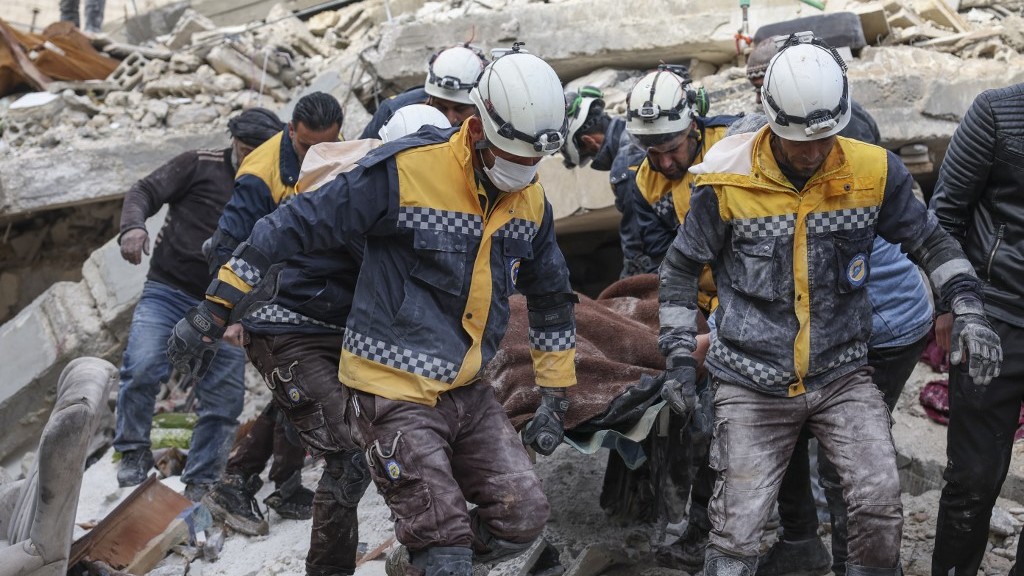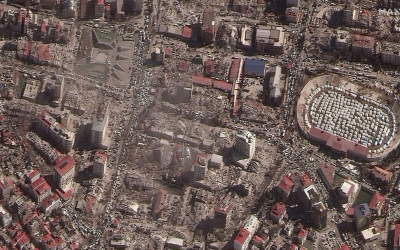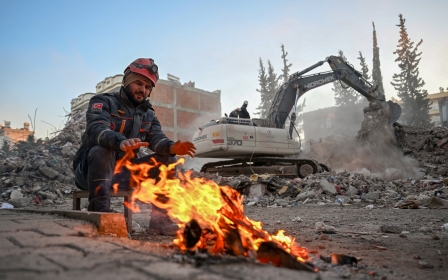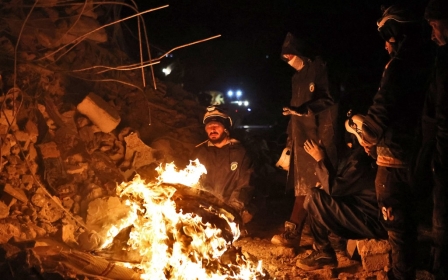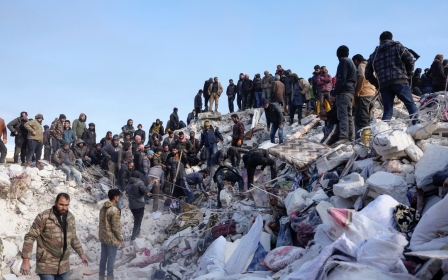Turkey-Syria earthquake: Are Syrian victims being overlooked?
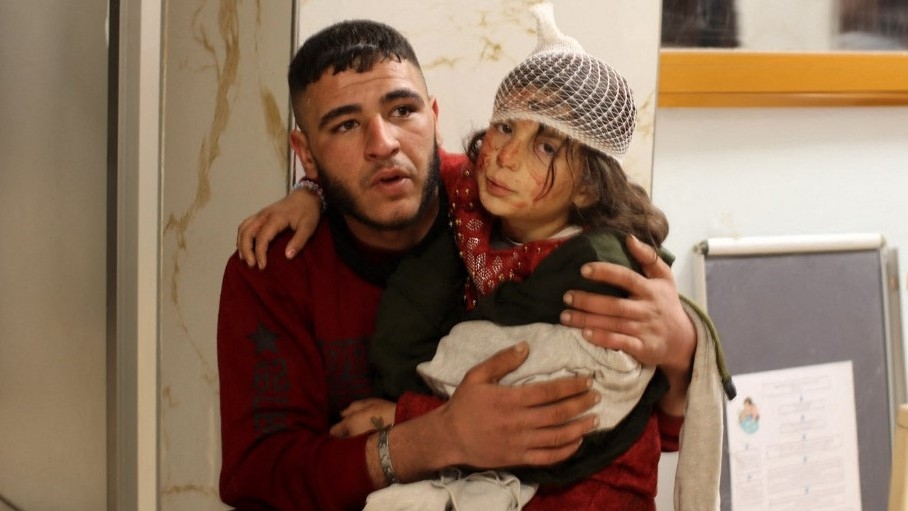
At precisely 1:25am UK time, I received a WhatsApp message from my brother, who resides in Antakya, Turkey, on our family group chat, reading: “My home has gone.” This was quickly followed by a message from our mother, who resides in the same city, reading: “All walls in our flat were destroyed.”
I was soon inundated with communications from both Turkey and northwestern Syria about an earthquake that had taken thousands of lives and homes. It was a miracle that my parents and brother were able to escape the destruction that befell Antakya, leaving buildings in the city crumbling like paper boxes.
I can only hope that the world does not again turn a blind eye to Syria's victims, and instead extends them the same support offered to victims in Turkey
At first, I thought it was all a dream. It took me hours to comprehend the magnitude of the disaster. I struggled to come to terms with the reality that these very same vulnerable people, who had already endured 12 years of conflict, were now being affected by a natural disaster of a scale that had not been seen in decades.
The magnitude 7.8 earthquake began at 4:17am local time in Turkey, and was followed by hundreds of aftershocks. The epicentre was around 20 kilometres deep, and the quake affected a large swath of southern Turkey and northwestern Syria, including Hatay, Gaziantep, Kilis, Aleppo and Idlib, among other areas.
The number of deaths has been climbing by the hour and has already surpassed 7,000. I believe this number will continue to rise significantly, as many people remain unaccounted for. In Turkey alone, more than 5,600 buildings have been destroyed.
New MEE newsletter: Jerusalem Dispatch
Sign up to get the latest insights and analysis on Israel-Palestine, alongside Turkey Unpacked and other MEE newsletters
Rescue missions
As rescue missions in Turkey began on Monday, I heard from people in Hatay that heavy equipment did not arrive until Tuesday morning. While the ongoing rescue missions have surely saved many lives, with thousands of people being extracted from the rubble, many more remain trapped beneath collapsed buildings, waiting for help.
In Syria, the White Helmets have been actively engaged in rescue missions in opposition-controlled areas, yet their resources are severely limited. Many NGOs have initiated large-scale fundraising campaigns, including the Union of Medical Care and Relief Organizations, the Molham Team and the Syrian American Medical Society, among others.
But the response is threatened by the status of the Turkish border crossing at Bab al-Hawa, a lifeline to Syria that has been closed amid significant damage, and other difficulties. In Syria’s regime-controlled areas, such as Aleppo and Hama, the Syrian government is leading the response. In opposition-held areas, the situation is more complicated.
Although the epicentre was in southern Turkey, the earthquake has had devastating effects across northwestern Syria where infrastructure has been severely weakened since the 2011 war broke out, with opposition-controlled areas bearing the brunt of the atrocities.
This, combined with the Syrian government’s war tactics - which have involved the destruction of civilian infrastructure in opposition-held regions - has left these areas in a state of extreme vulnerability. Facing a governance void, people there have relied heavily on cross-border aid from Turkey as the war has dragged on.
The situation for those in government-controlled areas of northwestern Syria, however, is not much better. The whole country has been devastated by the conflict, and the Syrian government is internationally isolated amid allegations of war crimes, including the use of chemical weapons, resulting in wide-ranging economic and political sanctions. These have had drastic effects on the socioeconomic status of ordinary people, pushing many further into poverty. The earthquake, which devastated poorly constructed dwellings, will only exacerbate these challenges.
Pressing needs
At present, the most pressing needs for affected people in northwestern Syria include support for rescue missions, emergency shelter and food relief, medical supplies, and diesel to ensure generators can function and provide basic electricity for hospitals.
While the Turkish government’s capacity and the influx of international aid will bolster rescue operations in Turkey, this scenario is unlikely to be replicated in northwestern Syria in the near future. This is due to the protracted nature of the conflict, the governance vacuum in opposition-controlled areas, and the politicisation and manipulation of humanitarian assistance by the Syrian government in areas it controls.
None of this, however, should be used as an excuse to disregard the plight of Syrians affected by the earthquake. The international community must find ways to provide support to all affected regions of northwestern Syria, such as by engaging with the highly experienced NGOs that have been operating there for the past 12 years. Unfortunately, certain donors remain hesitant to do so.
Syrians have already endured more than a decade of conflict, and they are now faced with the additional tragedy of this earthquake. Many Syrians have already suffered a great deal, working hard to re-establish their lives in northwestern Syria or in Turkey. Now, they find themselves badly affected by this disaster - and yet, their suffering might be overlooked due to the chronicity of the conflict and the vast scale of the earthquake in southern Turkey.
I can only hope that the world does not again turn a blind eye to Syria’s victims, and instead extends them the same support offered to victims in Turkey.
The views expressed in this article belong to the author and do not necessarily reflect the editorial policy of Middle East Eye.
This article is available in French on French Middle East Eye edition.
Middle East Eye delivers independent and unrivalled coverage and analysis of the Middle East, North Africa and beyond. To learn more about republishing this content and the associated fees, please fill out this form. More about MEE can be found here.



